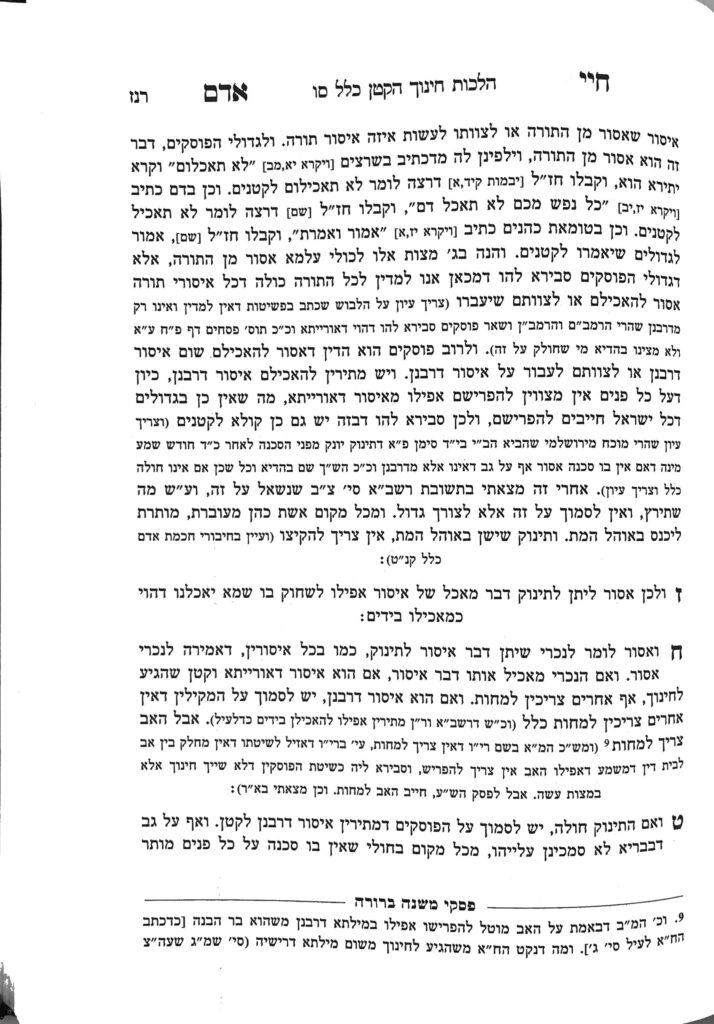We are continuing in siman 6, where the Chayei Adam discusses the concept of sefiya b’yadayim.
The Chayei Adam wrote that sefiya b’yadayim on an issur deoraysa is assur mi’deoraysa. In the parentheses, he challenges the opinion of the Levush, who holds not like him. Although the Chayei Adam makes it sound as though there is a strong case that sefiya b’yadayim on an issur deoraysa is assur mi’deoraysa, there are many poskim who disagree and understand it to only be an issur derabanan. Either way, the issur includes both feeding a child issur or directing a child to do an issur.
The above regards an issur deoraysa. Regarding an issur derabanan, the Chayei Adam writes that it is also assur to do sefiya b’yadayim. However, there is an opinion which is meikil and allows for an adult to feed or direct a child to do an issur derabanan. (Once the child has reached chinuch, the parents would certainly not be able to do sefiya, but the question regards other adults.) This opinion understands that since we know that adults have no chiyuv to stop a child from transgressing even an issur deoraysa (see shiur 1285 and 1286), we see that the adults’ level of responsibility for a child’s actions are lesser. Therefore, on an issur derabanan, which is less chamur than a deoraysa, one may perform sefiya b’yadayim. This is the opinion of the Rashba, but the Chayei Adam writes that one should not rely on the Rashba unless there is a compelling need. Either way, the Rashba can only be relied upon when facilitating an aveirah for the child’s benefit, not for an adult.
Be’ezras Hashem, we will clarify the Rashba’s opinion in the next shiur.
Summary
The Chayei Adam understands that sefiya b’yadayim to a katan on anything assur mideoraysa, or to tell a child to do any action which is assur mideoraysa, is an issur deoraysa.
Sefiya b’yadayim on anything assur miderabanan is assur as well, but there is an opinion one may rely on under compelling circumstances to perform sefiya b’yadayim



